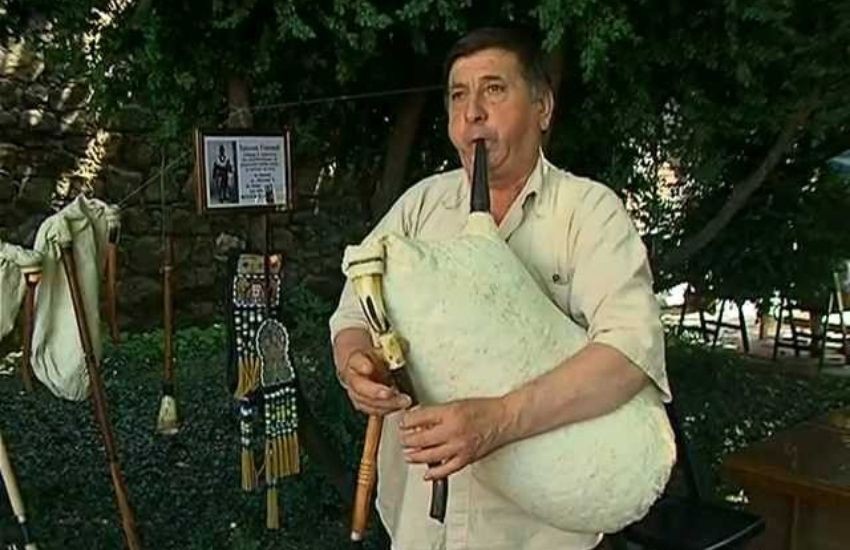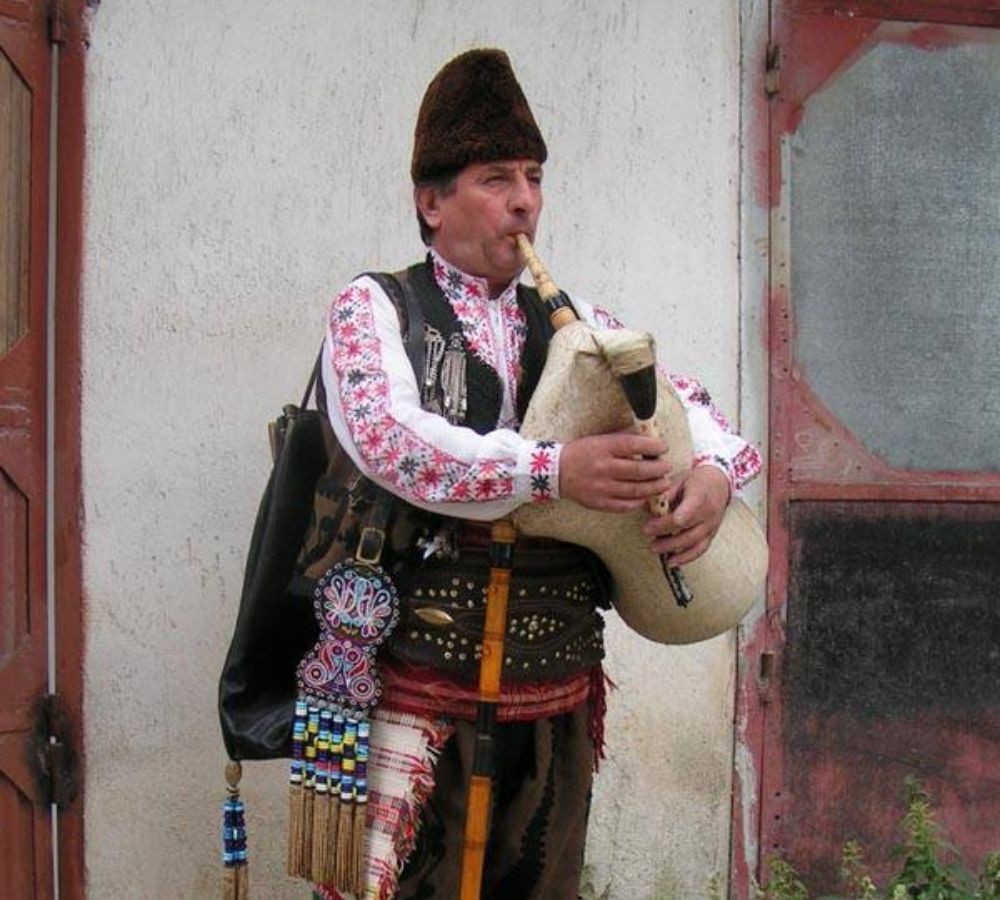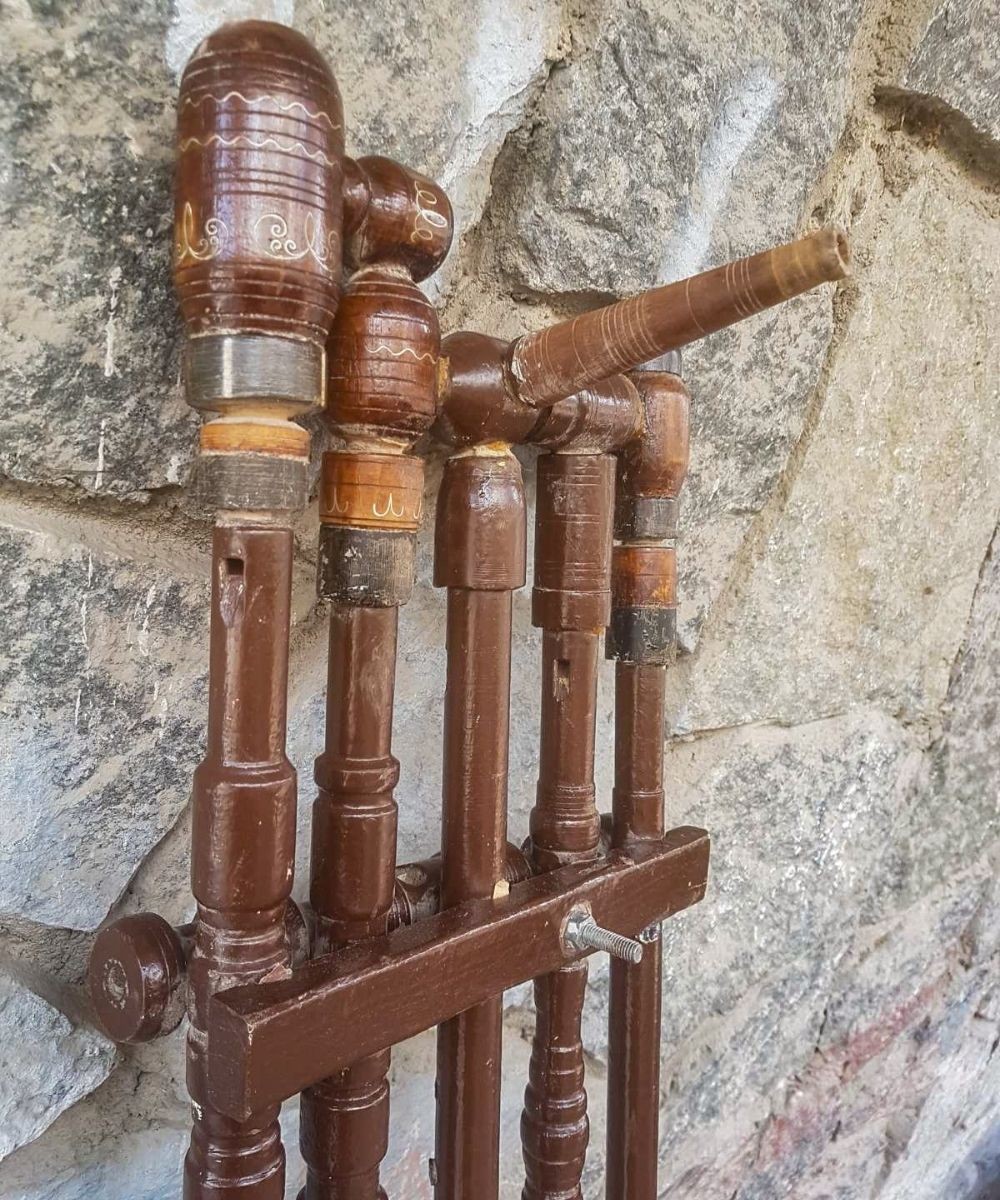The biggest, the smallest, the strangest bagpipe… Over the years he has crafted hundreds of bagpipes. Despite the pandemic he has never stopped working. In a small workshop in the neighbourhood of Raykovo in Smolyan, work never stops. 80-year old Hristo Topchiev is there every day to craft the instruments commissioned by people from all corners of the globe. In the time of pandemic and lockdowns people seem to have more time for music and for learning to play an instrument.

The rehearsals of the legendary orchestra 100 “Kaba” Bagpipes, which Hristo has been playing with for many years, have all been cancelled because of the pandemic. That is the reason why devoted all of his time to making the typically Rhodope bagpipes. Now, everything is done online, on the Internet, he tells us. On the Internet he gets his commissions. Hristo Topchiev also teaches enthusiasts how to play the bagpipe, all of them young people. They send him their recordings via email, and he teaches them over the phone how to get the best kind of sound out of the instrument. A 45-minute video lesson by Hristo Topchiev on how to make a “kaba” bagpipe – from A to Z – has been gaining popularity on YouTube.
The shriek of the “kaba” bagpipe is so outlandish that it transports the listener over mountain and scattered villages. People want to own such an instrument so as to try and “see”, in their mind’s eye the sound of the Rhodopes.

“From Sofia, from Plovdiv, from Kyustendil… From all over the country, people call from all over the country. From Germany too! There are bagpipes I have made all over the place,” says Hristo. “When they watch or listen to our 100 “Kaba” Bagpipes they want to have a bagpipe too. And the Rhodope bagpipes are the best! What sound! And the pitch is so pleasing to the ear, it is low, not shrill like the bagpipes from other parts of the world.”
Master bagpipe-makers are few and far between in Bulgaria. Hristo is one of them. His passion for playing and for making bagpipes has taken all kinds of forms. Some time ago he decided to make the biggest bagpipe.
“It was 1.60 m. long and very wide. I made it out of goat hide. Its sound is not very different from the sound of the ordinary “kaba” bagpipes, the same low pitch, but the bag itself is very big,” Hristo Topchiev says. Then he got another idea – to make the world’s smallest “kaba” bagpipe. For the purpose he used goat testicles for the bag, but that was not enough either:
“I made an even smaller bagpipe, and I called it dzhudzha-bagpipe (pygmy bagpipe). It is made of goat’s udder, from the teat where the milk comes out. Just like with professional bagpipes, it has the same chanter where the sound comes out,” Hristo Topchiev says.

With his wondrous dzhudzha-bagpipe which can fit into the palm of your hand, the master bagpipe-maker even applied for the Guinness book of records. But he didn’t stop at that – he invented a strange hybrid between kaval and bagpipe. You blow from one place and 3, 4 even 5 different sounds come out of the bagpipe, depending on how many drones Hristo has put on it.

In his workshop in Raykovo he also makes beautiful bagpipe bags which he decorates with different patterns of beads. He can barely keep up with the commissions which keep coming from all over the world. Now, Hristo Topchiev says he can’t wait for the pandemic to be over so he can start rehearsing with the 100 “Kaba” Bagpipes again. And one more thing he can’t wait for – the summer folk festivals and fairs in the hope that he will, once again, be able to share his music with the fans of the magical Rhodope “Kaba” bagpipe.
Photos: courtesy of Hristo Topchiev
The Bolhrad region of Ukraine is considered the heart of the Bessarabian Bulgarian community, home to the largest and most concentrated population of ethnic Bulgarians outside of Bulgaria. More than 200 years ago, Bulgarian emigrants fled the Ottoman..
She is a professional storyteller, telling stories from all over the world, but most of all tales from Bulgaria. But she is also a poet, a photographer and a tour guide, telling people stories while she shows them around. Meet Nana Tomova. She was..
Living abroad is nothing new for Marin Yotov. In fact, he could be considered a global citizen, having lived in several European capitals by the age of 34. Currently living and working in Berlin, Marin's life has taken him through Sofia, Vienna and..

+359 2 9336 661
